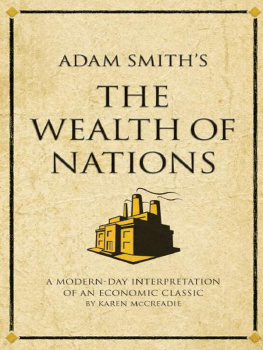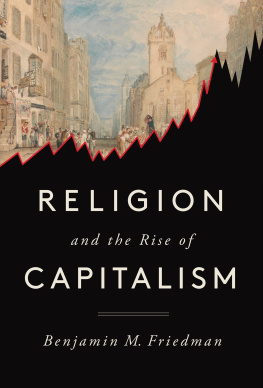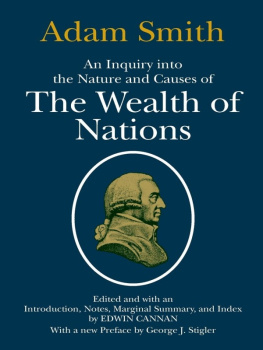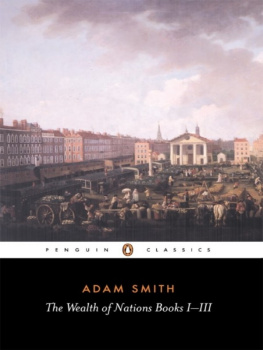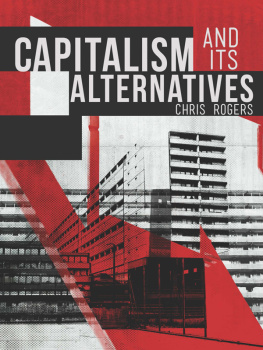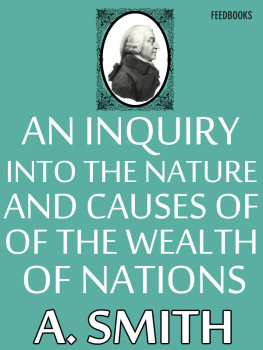Idols of Nations
Biblical Myth at the Origins of Capitalism
Roland Boer and Christina Petterson
Fortress Press
Minneapolis
IDOLS OF NATIONS
Biblical Myth at the Origins of Capitalism
Copyright 2014 Fortress Press. All rights reserved. Except for brief quotations in critical articles or reviews, no part of this book may be reproduced in any manner without prior written permission from the publisher. Visit http://www.augsburgfortress.org/copyrights/ or write to Permissions, Augsburg Fortress, Box 1209, Minneapolis, MN 55440.
Cover design: Laurie Ingram
Cover image The Bridgeman Art Library
Library of Congress Cataloging-in-Publication Data is available
Print ISBN: 978-1-4514-6544-0
eBook ISBN: 978-1-4514-8441-0
The paper used in this publication meets the minimum requirements of American National Standard for Information Sciences Permanence of Paper for Printed Library Materials, ANSI Z329.48-1984.
Manufactured in the U.S.A.
This book was produced using PressBooks.com.
When Adam delved and Eve span, Who was then the gentleman?
The Rev. John Ball, Lollard priest,
from a sermon preached at Blackheath
at the beginning of the Peasants Revolt (1381).
On the cover: The Labors of Adam and Eve.
Panel from the Grabow Altarpiece at the St. Petri Church in Hamburg, 13791383
(oil tempera on wood; Inv. 500 h/3; photo: Elke Walford).
Contents
How did the early ideologues of capitalism engage with the Bible and theology? How did they wrestle with the Bible in constructing myths to justify what was still a new economic order? What is it like to read those whom Marx read when researching Capital? These are some of the questions that played in our minds as we read, discussed, and wrote this book. Hugo Grotius, John Locke, Adam Smith, and Thomas Malthus are our concerns, and into their thoughts we have delved. We have been intrigued, surprised, exasperated, underwhelmed at their banalities, often laughing out loud at their astonishing contortions as they sought to retell biblical stories. Or rather, they try to retell the story of the Fall, and of Adam more generally, finding there the origins of private property, self-interest, labor, exchange, commerce, law, and states. In the process, greed becomes a social benefit, acquisitiveness part of the divine plan, and labor a result of Gods command to subdue the earth. Idols indeed, worshipped and justified by a text that systematically condemns those idols. After all, it takes some deft storytelling to make the biblical text say almost exactly the opposite of what it does say.
In the process of writing, we have been assisted by those who have read and commented on regular posts on Rolands blog, Stalins Moustache (stalinsmoustache.org). Often these posts contained some of the more outlandish quotations from these early economic thinkers, quirky and offensive pieces that reveal the truth about their proposals as a whole. In addition, Warren Montag provided sage advice on John Locke and Adam Smith. Mika Ojankangas from Finland gave insight into the workings of their thoughts, as well as those of Grotius and Malthus, on human nature and moral philosophy. And the participants of the Bible and Critical Theory Seminar (which meets annually in a pub somewhere in Australia or New Zealand) asked pointed questions. Last but not least, Neil Elliott of Fortress Press urged and encouraged us to write this work. To all these people, we are extremely thankful.
As we read and wrote, we were mindful of the fact that we were treading in Marxs footsteps to some extent. He read these same texts in the slow process of writing Capital. Although we cannot hope to match his critique and insight, we have undertaken this project with a similar approach: to ascertain the patterns of argument, myth-making, and the blind spots of what became the ideological carapace for capitalism. For many a long year we have discussed and debated our individual projects, but this is the first full work we have written together. As such, it is truly a joint project.
On the (Red Arrow) train
Somewhere between St. Petersburg and Moscow
September 2013
The present study investigates the interaction between theology and economy in the writings of four political economistsHugo Grotius, John Locke, Adam Smith and Thomas Malthuswho are commonly grouped with the founding fathers of economics. If, as Ben Fine and Dimitri Milonakis argue, the discipline of economics constituted itself through a process of individualization, de-socialization, and de-historicization, we would like to add to this the process of de-theologization, as also an important step in the dialectic of reduction and universalism that is crucial to economics imperialism. For Fine and Milonakis, economics imperialism refers to the application of supposed universal criteria derived from classical and neoclassical economics to all aspects of human existence, including the choices people make in relation to religion. That is, religion too is a marketplace, and human beings as economic animals make rational choices in light of what they regard as their own benefit. In the process of reduction and universalization, the specific and limited nature of the economic theory in question is effaced. These limitations appear when one investigates not only the social and historical context of its emergence, but also the biblical and theological nature of those earlier debates. Our task here is to focus on this final element, namely, the way the Bible and theology indelibly stamp the theories in question.
We have decided to focus on four of the key theorists rather than offer a grand sweep characteristic of what is known as the History of Economic Thought (HET).
Thus, in the chapter on Grotius (15831645), we identify his Arminian (or Remonstrant) theology and the constituent role it plays in his interpretation of the Fall. Keen to avoid the imputation of evil to God and to assert the freedom of the will for each individual, Grotius effectively minimizes the effects of the Fall on human nature. As a ruling class ideologue in the United Provinces (Netherlands) during the first capitalist commercial empire, he shares their abhorrence at the central doctrinal point of Calvinism that all ones works, achievements, wealth, and power count as nothing before God. This effort to tame the Fall provides the necessary preconditions for what is arguably the first version of the myth of capitalisma myth that constructs a story of the origin of private property out of an original common, as well as the growth of law, states, and commerce. That myth also provides Grotius with a means for arguing that the seas cannot be private property, for they have never met the criteria he has invented. Grotius also provides an excellent example of the constitutive limitations of the doctrine of liberalism, particularly in the way he shows how slavery is entailed by private property.
From Grotius we move to Locke (16321704), who develops the myth further on the basis of his own effort to limit the effects of the Fall. For Locke, the Fall pertains only to mortality, which enables him to sidestep the other curses relating to labor and property. However, the Fall continues to trip up Locke as he outlays both his principles of human nature (freedom and equality) and his myth. In order to trace the Falls deft ability to trouble Lockes efforts, we focus on both of his treatises on government, since the first treatises detailed biblical engagements (especially Genesis 13) provide the basis for his famous myth of property in the fifth book of the second treatise. Like Grotius, Locke provides clear examples of the logic of exclusion found in the universal claims of liberalism, particularly in terms of children, the state of nature, and ethnocentrism.


